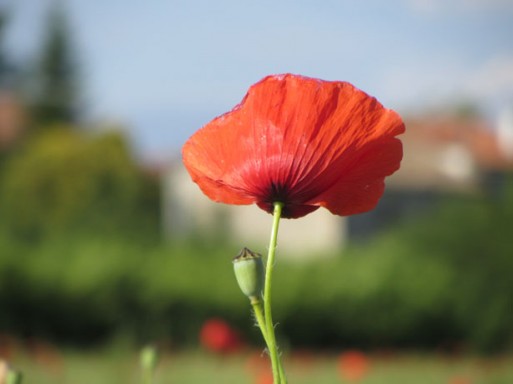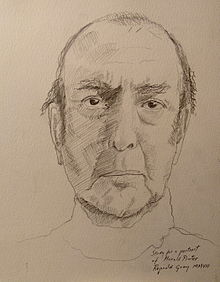Death draws many reactions from people (some of which I discuss here and here), but one of the most common is anger. Though it’s abstract, Harold Pinter’s “Death May be Ageing” exemplifies the resentment that many experience after a loss. He opens the poem with “Death may be ageing/But he still has clout” (1-2), which asserts Pinter’s opinion that death, in any era, still packs a punch. Pinter ensures that the reader doesn’t take this as some sort of compliment by using the next stanzas to describe how conniving death (personified as a male) is.
The poet states that death “disarms you/With his limpid light” (3-4). In other words, it catches people off guard and renders them completely defenseless. Pinter calls death “crafty” (5), and claims that he sneakily hides and “awaits you” (7) without your knowledge. Once you come upon death, he “seduce[s] your will” (8), or makes you want to go with him. In this portrayal, death is devious and manipulative. The poem’s cleverest lines, though, come just afterward: Pinter writes that death “strip[s] you naked/As you dress to kill” (9-10). The poet avows that death gets in the way of people’s plans; it doesn’t care that you have goals or places to be, it arrives when it feels it is the right time.
The following two lines seem to contradict this idea: “But death permits you/To arrange your hours…” (11-12). This leads the reader to believe that Pinter may not have a wholly negative view of death. However, the final couplet proves just the opposite: “While he sucks the honey/From your lovely flowers” (13-14). Death is constantly taking things away. Even if it is not our time to go, something else must, as the cycle of life is constant.
Though I don’t think there’s untruth to this poem, I feel that it paints death as far more sinister than it really is. Pinter uses an image of nature at the poem’s close, but I feel that he is forgetting that death is a major part of nature too, and therefore it is not as calculating as he depicts it. Whether this poem stems from a general opinion or from anger, I still feel that it is a little too harsh. Death may come at inconvenient times, but it is not evil. Death is a part of life that has been around so long it’s, as Pinter puts it, “ageing” (1).
- Learn more about the poet
- Read a review of Elisabeth Kubler-Ross’s On Death and Dying

 “Death May be Ageing” Harold Pinter
“Death May be Ageing” Harold Pinter




 “Help Me, Helen”
“Help Me, Helen”
 Recovering Cremation Remains After the Los Angeles Fires
Recovering Cremation Remains After the Los Angeles Fires
 “As Tears Go By” by Marianne Faithfull
“As Tears Go By” by Marianne Faithfull














